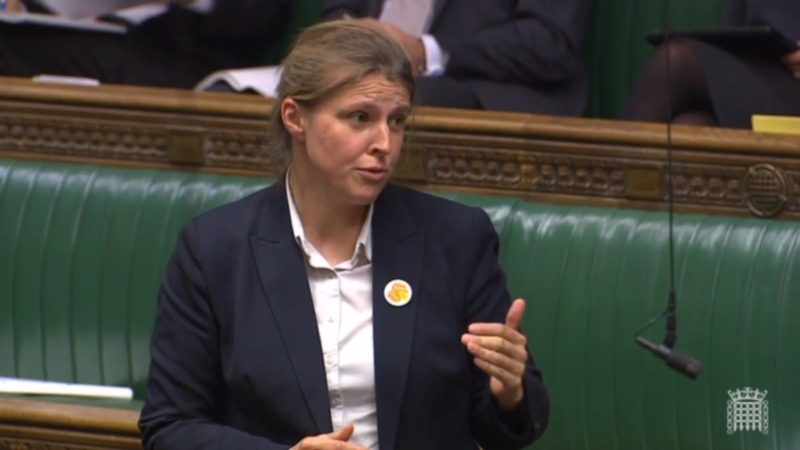
19th July 2022
Rachael Maskell, the MP for York Central is deeply concerned about the impact of extreme heat on her constituents, not least at a time when the NHS is overloaded and community services are under severe pressure.
As well as encouraging everyone to drink plenty of water, stay cool and protect themselves from the sun, she believes that residents should have been made aware of cool venues that they could visit if their workplace or home was too hot.
In Parliament she raised the impact of climate change on our infrastructure and how it lacked resilience in conditions, with trains running slow, if at all. The public has been advised not to travel. The Cabinet Minister was lackluster in his response, as if this were not a serious situation.
Later in a question to the Health Secretary, she highlighted how old and vulnerable people can become medically compromised very rapidly in extreme heat and would need urgent attention.
Rachael Maskell MP said:
“Basic preparations have not been undertaken to keep residents safe. Responses from both the Cabinet Office and Health Secretaries did not appreciated the seriousness or urgency of the situation. At every tier of Government there should have been extensive planning for periods of extreme heat. Cool rest facilities should have been put in place, where local people could go to cool off. Some people live in flats or are working in extremely uncomfortable conditions. Even at this late hour, I ask that facilities are made available and old stone churches, which remain cool, open their doors to the public.
“As for responding to the public, our NHS and ambulance services cannot cope with demand. While staff will do everything they can, and I sincerely thank them for all they do, the system is broken and ambulance wait times are too long when someone is going off rapidly. We need to ensure that everyone can receive the healthcare they need, and that proactive support is available to prevent ill health.
“Extreme heat can impact on everyone, and I urge people to take all the precautions they can, and ensure that family, friends and neighbours are safe.”
For more advice on how to stay safe during the heatwave visit the NHS website or follow this link: Heatwave: how to cope in hot weather – NHS (www.nhs.uk)
Exchange with the Cabinet Office Secretary, Kit Malthouse MP
Rachael Maskell MP
As the planet is heating up our infrastructure is melting down. Trains today are on go slow, tomorrow they won’t be running at all. At what temperature is our vital infrastructure, including our transport infrastructure designed to operate and when will it be resilient for future heatwaves.”
Kit Malthouse MP
As I said earlier the Hon Lady thinks she is asking a simple question, but it is actually quite a complicated one. The mitigations you put in place to for example on a railway to deal with extreme heat may cause you problems when it gets cold. Dealing with both those issues is an engineering feat which I am afraid beyond me at the despatch box. But one of the things we need do over the next 48 hours is learn about exactly the kind of impact that she’s talking about. We all hope that the system will perform well, but given that we have never experienced these kind of temperatures before, if we hit the record. We just need to be cautious and learn from the experience.
Exchange with the Health Secretary, Steve Barclay MP
Rachael Maskell MP
Older and more vulnerable patients can become very medically compromised, very quickly, in extreme heat. In Yorkshire, you could be waiting for Category 1, 9 ½ minutes; Category 2, 18 minutes over the expected time; and 2 hours 41 for other medical conditions. As a result of that people clearly need support far earlier and assessment far earlier. What is he doing to deploy first responders in areas so that people can get a medical assessment and intervention far quicker.
Steve Barclay MP
Well I broadly agree with the Hon. Lady in terms of getting targeted support particularly to those in domiciliary care therefore working with those in primary care in terms of that. Specifically, over the coming days through the local resilience forums but more in the medium term through the Integrated Care Boards. It’s part of that wider package of measures that needs to be put in place, working with primary care, looking at mental health support , looking at what can be done to raise productivity through better use of innovation and technology. And across the board we will be looking at all the innovations that are available to assist with the pressures she highlights

